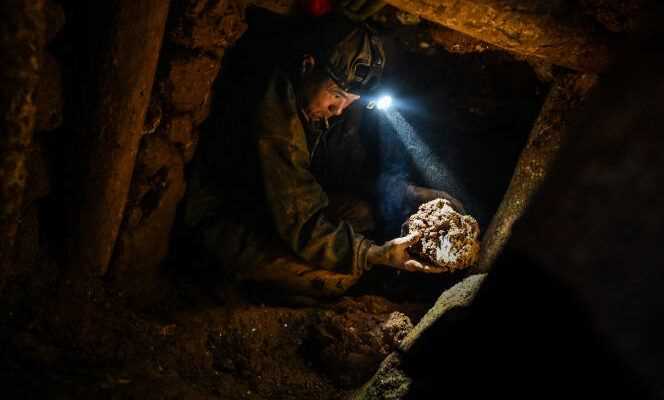As Burma sinks into the political and humanitarian crisis, the British NGO Global Witness accuses, in a report published on December 15, several major jewelry brands indirectly finance, through the purchase of Burmese rubies, the military junta that came to power by a coup on 1er February. Among them are Van Cleef & Arpels, a subsidiary of Richemont, and Bulgari, a brand owned by LVMH, accused of selling stones known for their intense red, whose extraction in Burma is associated with human rights violations and fuels armed conflicts.
When Aung San Suu Kyi came to power in 2016, the Burmese government decided to no longer grant licenses to mining operators, often controlled by the military. After their departure, in 2020, the exploitation continued, but illegally. Informal minors interviewed by Global Witness say they have “More opportunities than before the coup” thanks to access to “Plots rich in precious stones”. Their activity has also become more dangerous. “The army collects bribes from tens of thousands of local residents who mine by hand,” says the NGO which reports that these are “Very vulnerable” at the risk of “Arbitrary violence”.
There are also several accidents. In recent months, at least four miners have died in a collapsing underground gallery 300 meters deep and two others have died of asphyxiation in their sleep due to lack of oxygen. Mining also finances local armed groups, some of which operate on the borders with China and Thailand and are involved in smuggling. Global Witness concludes that it is “Impossible to stock up on Burmese rubies without financing the Burmese military junta and / or contributing to conflicts and human rights violations”.
Slow motion
Charges disputed by Vincent Pardieu, a gemologist based in Bangkok and who has visited many Burmese mines: “The majority of rubies in Mogok, in Burma, are like antiques that are resold several times during an inheritance, a disaster, or to repay debts or even settle a divorce. “ According to him, the production of rubies is currently almost zero: ” Activity has slowed sharply since the start of the year due to the Covid-19 epidemic and the insecurity that followed the February coup. Informal miners do not have the equipment to dig deep and find ruby, so they revisit the tailings from existing mines to extract other stones such as spinels or sapphires. “
You have 54.32% of this article to read. The rest is for subscribers only.
